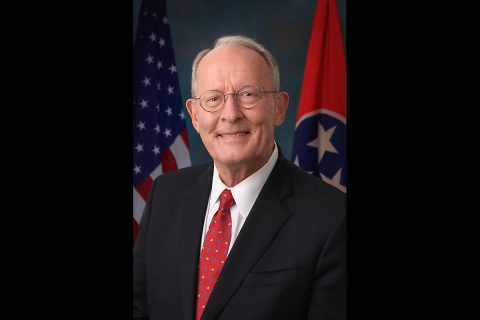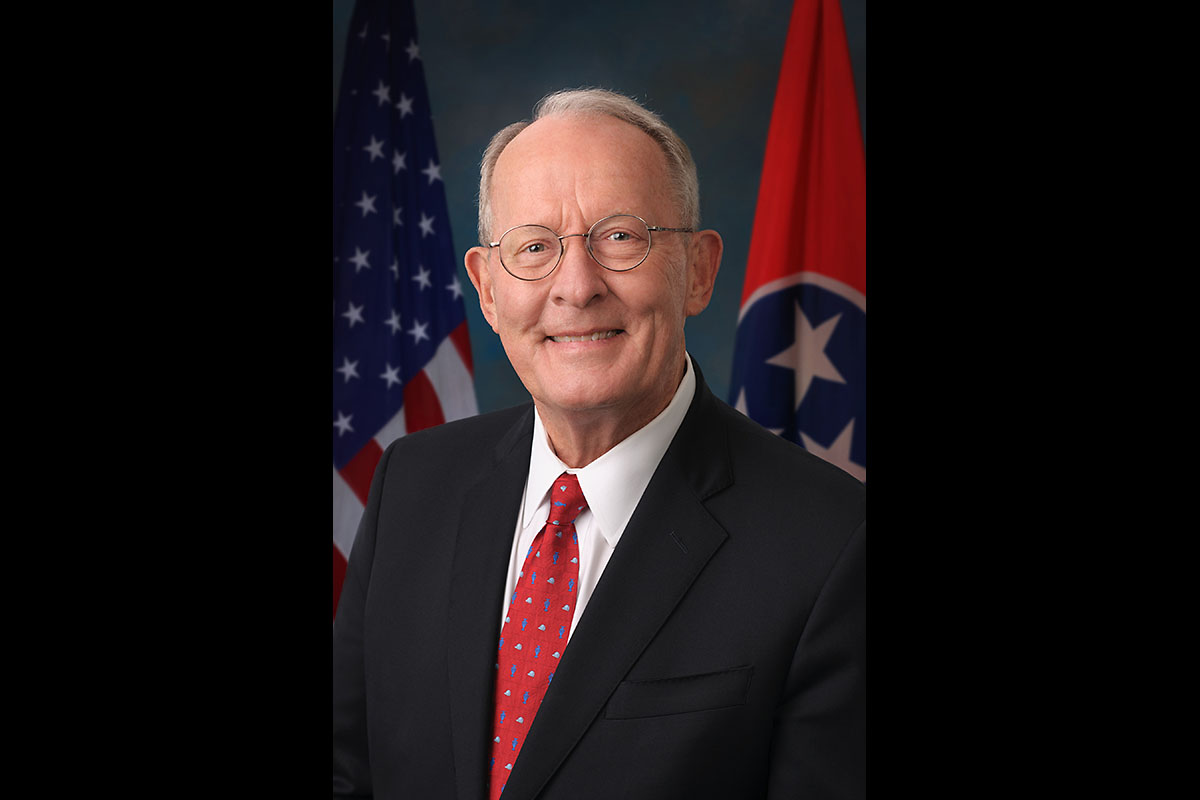 Washington, D.C. – It’s important to remind ourselves of the difficulty we have as a country in dealing with racial discrimination. We’ve made so much progress over the years, but obviously we have a long way to go.
Washington, D.C. – It’s important to remind ourselves of the difficulty we have as a country in dealing with racial discrimination. We’ve made so much progress over the years, but obviously we have a long way to go.
I think of my friend, South Carolina U.S. Senator Tim Scott, who is African American and who told me that he was stopped by police several times even when he was on the Charleston County Council for “being a black man in the wrong place.” We must redouble our efforts to change such attitudes and end racial discrimination.

This week, I chaired a hearing in the Senate education committee with college administrators to explore how schools can safely reopen in the fall. The question isn’t whether or not students will return in the fall, but how to create an environment where they can do so safely.
Tennesseans in the Chattanooga area affected by the tornadoes on April 12th-13th: The deadline to apply for disaster assistance is soon – June 23rd. To apply for assistance, you can click here or call 1.800.621.3362 or TTY 800.462.7585.
Next week, the U.S. Senate will be casting the most important vote on outdoors conservation legislation that we’ve had in 50 years. This bill, the Great American Outdoors Act, will fully fund the Land and Water Conservation Fund permanently – something Congress has been trying to do since 1964.
The legislation also includes the Restore Our Parks Act – legislation I introduced that would cut in half the maintenance backlog at our national parks and help restore our 419 national parks, including the Smokies, so Americans can enjoy them.
Remembering the legendary University of Tennessee player and coach, Johnny Majors
As a teenager, I rode the White Star Lines bus from Maryville to Knoxville and sold all my U.T. programs before the game started so I could watch every Johnny Majors run and pass and punt and quick kick. When he played the game, he WAS Tennessee football, and the Majors family became the First Family of Tennessee football.
I got to know Johnny well when he was coach of the Volunteers, and I was university president. That friendship continued for many years. Honey and I send our sympathy and our great respect for Johnny’s life to Mary Lynn and to the entire Majors family.
Ensuring Tennessee colleges and universities return in the fall, and do so safely
This week, I chaired a hearing in the Senate education committee with college administrators not about whether colleges and universities should open in the fall, but on how they can open and do so safely. Dr. Logan Hampton, president of Lane College in Jackson, was one of our witnesses, and I enjoyed hearing his perspective.
President Trump and Congress should not be telling the University of Memphis that it must open its classes in person, or telling Vanderbilt University it cannot—or telling U.T. Knoxville that it must test everyone on the campus or telling Tennessee State University that it cannot. Colleges themselves, not Washington D.C., should make those decisions.
I was recently on a phone call with about 90 presidents of Tennessee’s 127 institutions of higher education, almost all of them are planning to resume in-person classes in the fall, and the one thing that was made clear was this: all roads back to college lead through testing. The availability of widespread testing will allow colleges to track and isolate students who have the virus or have been exposed to it, so the rest of the student body doesn’t have to be quarantined.Many American colleges—overall considered the best in the world—will be permanently damaged or even have to close if they continue to be, as a witness at my hearing said, “ghost towns.” And we know that a single lost year of college can lead to a student not graduating from college and set back career goals.
Two thirds of college students want to return to campus, according to an Axios survey. At Purdue University, tuition deposits by incoming freshmen broke last year’s record. Colleges and universities are micro cities. College presidents and administrators can make them among the safest small communities in which to live and work during this next year. In doing so, they will help our country take its surest step toward normalcy.
As chairman of the Senate education committee, I will continue to work to ensure the federal government is giving institutions of higher education across our country the tools they need to reopen safely in the fall.
Help is on the way to more than 85,000 Tennessee small businesses and their employees
The Paycheck Protection Program (PPP), which was included in the CARES Act I supported, is a federal relief program that provides sweeping relief to keep paychecks coming for workers across the country. This week, the U.S. Senate unanimously passed the Paycheck Protection Program Flexibility Act – legislation that provides the PPP additional flexibility for the more than 85,000 Tennessee small businesses who have received forgivable loans through the program.
As of May 30th, the Small Business Administration had approved more than $8.8 billion in loans for Tennessee businesses. Currently, businesses only have eight weeks to spend the money, which many business owners in Tennessee have said is not long enough to bridge the economic gap created by the COVID-19 Coronavirus outbreak. Giving businesses 24 weeks to use the loans better reflects the real world challenges facing small businesses and should help Tennessee small businesses retain more workers.
Preserving our national parks for future generations
During this next week, the United States Senate will take up and hopefully pass a piece of legislation I’ve been working on for several years, which will be the most important piece of conservation legislation in the last half century. It’s called the Great American Outdoors Act, and what it does is takes care of deferred maintenance on our federal lands, including our national parks.
For example, in the Great Smoky Mountains National Park, there is $224 million of deferred maintenance. That means roads that have potholes, or trails that are worn out, or sewage systems that don’t work and close down whole campgrounds, or visitor centers that have become dilapidated. That’s true all across our country in 419 different national park sites. This legislation will take care of one half of all of that deferred maintenance at our national parks over the next five years.
It has the support of President Trump, 59 United States Senators, and over 800 conservation and sportsmen’s groups. And it is my hope that the Senate passes it this month, and it becomes law this year.
Vaccines save lives
One of the many disruptions the COVID-19 Coronavirus crisis has caused is to routine health care visits and childhood immunizations. This pandemic has proven with more clarity than ever that vaccines save lives, as we respond to a disease for which we do not have one. Because of COVID-19 Coronavirus, the U.S. Centers for Disease Control and Prevention (CDC) and pediatricians are reporting that millions of children aren’t getting routine vaccinations for preventable diseases like measles and whooping cough.
The Tennessee Department of Health says vaccinations in Tennessee in April 2020 are down almost 40 percent compared to April of 2019. That needs to change. As states are opening back up, doctors, nurses, and state and local public health departments are working to catch children back up on routine immunizations. Parents should consult with their child’s doctor and get back on track with the appropriate vaccines for their child so they are not vulnerable to diseases like measles.
As we look to the flu season this fall, it will also be important for as many people as possible to get the flu shot. CDC this week announced, due to the CARES Act, it is providing $2.4 million to Tennessee and $140 million nationwide to help states provide flu vaccines to children and adults. This is welcome news because vaccines save lives.
Lowering out of pocket insulin costs for Medicare’s seniors
The Centers for Medicare & Medicaid Services (CMS) announced last week that certain Medicare plans will be offering lower insulin costs for the 2021 plan year. This announcement means that next year the out-of-pocket cost of a month’s supply of insulin could drop from hundreds of dollars a month to $35 a month for many Americans on Medicare. For seniors with diabetes, this will be a huge step in lowering health care costs.



